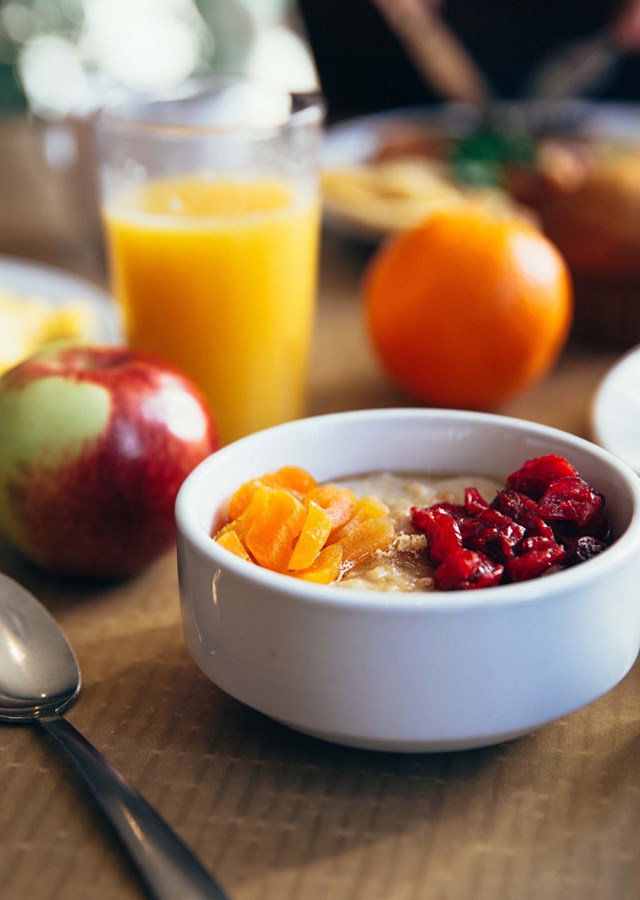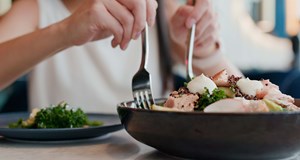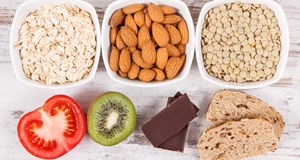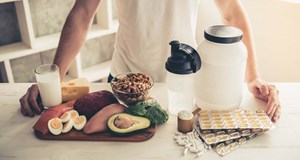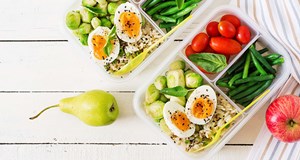What is a healthy diet?
by Nicola Tordoff-Sohne, Group Head of Wellbeing at JCT600 and registered nutritional therapist
What we choose to put on the end of our fork has a huge impact on how we look, feel and how resilient we are.
Food is so much more than calories for energy. Every bite contributes to the regulation of our hormones, immune system, brain chemistry, microbiome (gut bacteria) and gene expression. You read that right – the food we eat contains information that speaks to our genes!
This ‘food information’ programs our bodies with messages that are either tipping the scale towards good health or poor health and low energy. But, what does a healthy actually look like? Take a look at the tips below, and you can't go wrong!
Let food be your medicine and look after your body by following these simple tips:
1. Eat the rainbow
The variety in our diets has dwindled significantly for modern man. Our nomadic hunter-gatherer ancestors would eat hundreds of different kinds of plants that would change by season and location. The average person today will include just 12 different types of plants in their diet.
Variety is key in making sure we’re getting all the different nutrients that have been shown to protect our health. The good news is that by ‘eating the rainbow’ and making sure you’re getting red, orange, yellow, green and purple fruits and vegetables every day, you can hit all those nutrient requirements. You could challenge yourself to adventure down the vegetable aisle and try a few new things every now and then!
2. Support your defences
A well balanced diet can support and help maintain a strong immune system. Certain vitamins and minerals are known to play a big role in immune function. Aim to include these foods in your diet to support your immune system:
- Vitamin D – in salmon, eggs and dairy (but the main source is from sun exposure!)
- B vitamins – in brown rice, barley, red meat, poultry, fish, eggs, dairy products, beans and lentils
- Vitamin C – in citrus fruit, bell peppers and strawberries
- Zinc – in meat, poultry, beans and nuts
- Magnesium – in leafy green vegetables, legumes, nuts and seeds
- Omega 3 – in foods such as oily fish and walnuts
Consider taking a good quality multivitamin supplement if you’re not getting enough vitamins and minerals through your diet. It can also be a good idea to take vitamin D and zinc in the winter months to support your immune system.
3. Support the little guys in your gut
The microbiome (the bacteria that live in our gut) plays a crucial role in our health. Research shows how gut bacteria affects so many areas of health. Having the right balance of bacteria in the gut is connected to digestive health, as well as our mood and mental health. You can support your gut by eating a variety of:
- Food that contains prebiotics
These are foods rich in prebiotics such as garlic, onions, leeks, bananas, oats, beans and berries. - Probiotic foods and drinks
These contain beneficial bacteria and help to populate your microbiome. Try including natural yoghurt, kefir, sauerkraut, kombucha, sourdough bread, smelly blue cheeses and pickles in your diet.
4. Cut back on the booze
We all know that too much alcohol is bad news for our liver but did you know that alcohol can also impact on the much needed diversity of the bacteria in the gut? It can also deplete our stores of vitamins and minerals and raise blood sugar.
All this can leave us feeling tired, foggy and irritable in the short term (most of us recognise a hangover!) but also increase our risk for mental and physical health issues in the long term.
5. Stop the ride, I want to get off
I’m talking about the blood sugar rollercoaster! The foods we eat have a direct impact on our blood sugar levels, which can then impact on mood and energy levels.
The soft, fluffy white foods (refined carbohydrates) like mashed potatoes, white rice, white bread and sweet foods or drinks spike blood sugar, giving us a big energy boost, followed by a blood sugar crash and cravings for more. This blood sugar rollercoaster is bad news for our health and also for our weight, mood and quality of sleep.
Aim to keep blood sugar levels balanced by avoiding the soft, white and fluffy / sweet foods (and drinks!). Also include enough protein, healthy fats (such as olive oil, avocado, nuts and seeds) and plenty of fibre (from vegetables) in every meal.
6. Eat mindfully and keep it simple
The Mediterranean diet has been shown to be one of the healthiest ways to eat. This diet is full of lots of fresh, fibre rich food and omega 3 rich fish… but it’s not all about the food. Food is information, but a meal is something that brings people together and we know how important social connections are for our health.
In the classic Mediterranean diet, community plays an important role. People sit and eat together. They share their food and bond together, taking their time. The social setting may be as important for health as what they are eating. Eating with others helps us to slow down, chew better, eat mindfully and really appreciate the meal.
The more we can do this at home, the better. Mediterranean food also tends to use simple and whole ingredients. I always try to avoid food that has been ‘messed with’ too much. A simple rule for eating healthy food is, if the ingredients read like a Tolstoy novel, it’s probably not a great food choice!
Your health and wellbeing
Good nutrition supports our health and wellbeing, improving how our body and mind function and affects how we feel. So, the key is to eat well and let good, honest food inform and support your health and wellbeing.


